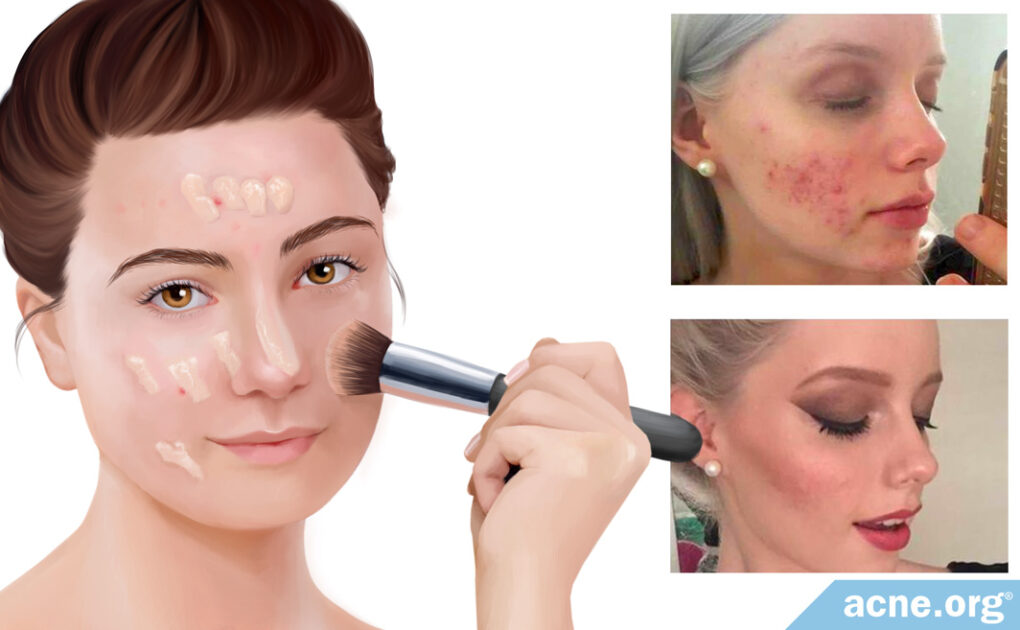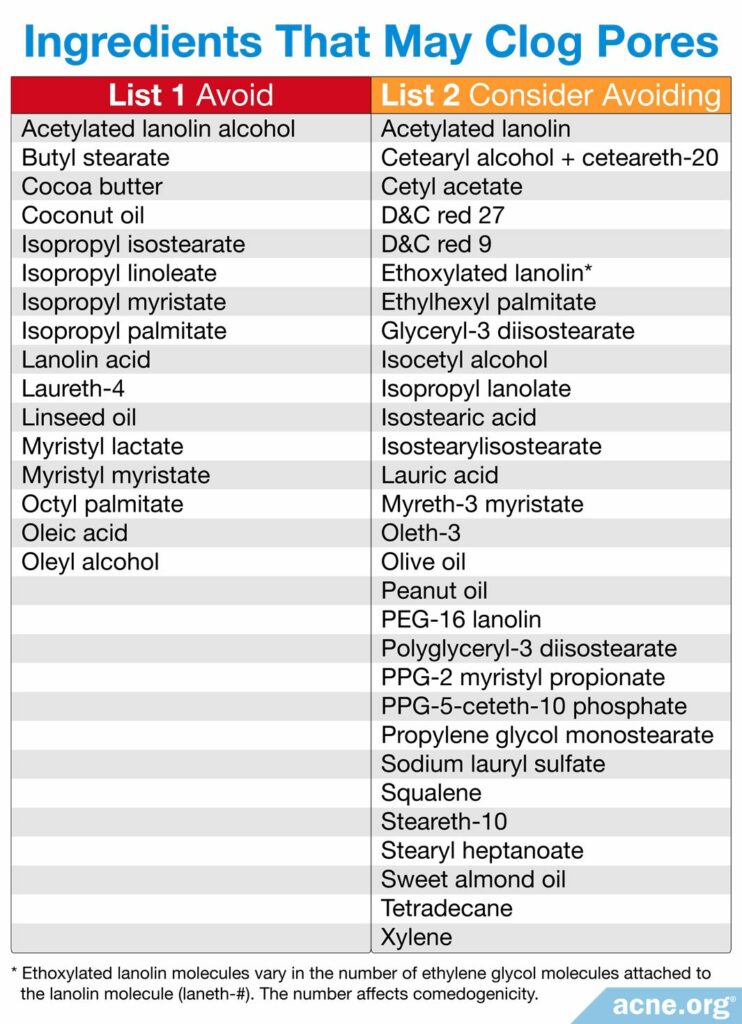Yes, Just Make Sure to Use Non-pore-clogging and Non-irritating Makeup

The Essential Info
Acne can lower self-esteem and cause people to feel uncomfortable in social situations.
The best solution is to treat acne, but any effective treatment takes time to yield results. In the meantime, using makeup to cover up acne lesions can counteract the negative psychological effects.
However, it is important to select makeup products that are free of pore-clogging or irritating ingredients. And since physically irritating the skin can lead to more acne, stay exceedingly gentle when you apply it.
Lastly, as soon as you are cleared up, try to go without makeup whenever you can. It’s safer not to use makeup when you have acne.

The Science
- Types of Makeup for Covering up Acne
- Evidence That Makeup Improves Self-esteem in People with Acne
- Choosing the Right Makeup
- Reduce Makeup Use Once Your Acne Clears
Living with acne can damage self-esteem, leading to a lowered sense of one’s own worth and importance.1-4
A paper published in the International Journal of Women’s Dermatology in 2017 analyzed 13 studies looking at self-confidence in acne patients. The researchers concluded that acne lowers the self-image of people in all age groups, especially in women and people suffering from severe acne.
The study authors wrote, “Our research included data from 13 studies conducted in 11 countries…[Acne] affects quality of life and self-esteem across all age groups and cultures.”1
Another study published in the journal Nutrients in 2022 found that women were more likely than men to experience psychological discomfort due to acne.
The study authors wrote, “Women experienced psychological discomfort more frequently than men…and used make-up to conceal lesions.”5
Three other recent studies have also found that acne can lower self-esteem, particularly in teenagers.2-4
Not only that, but teen acne can lead to teasing and bullying, causing further psychological damage.3
Expand to read details of studies
It is important to treat your acne so that breakouts no longer occur. However, while you wait for your acne treatments to take effect, masking the symptoms of acne with makeup can ease your discomfort in public and raise your self-confidence.
Types of Makeup for Covering up Acne
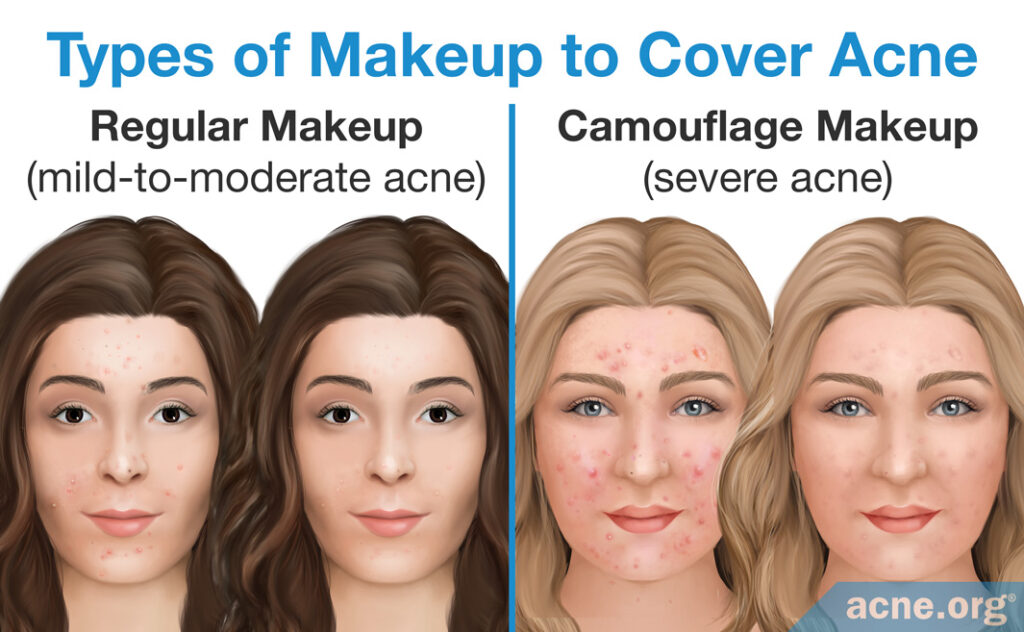
Mild-to-moderate acne: Regular foundations and concealers may be sufficient to cover acne lesions, scars, and/or hyperpigmentation (darkened spots that sometimes remain after acne lesions have healed).
More severe acne: Specialized makeup called camouflage makeup offers a heavier, waterproof option designed to provide more complete coverage. You can tell that a product is camouflage makeup because the label will usually contain either the word “camouflage” or the word “cover”: for example, “camouflaging foundation” or “cover cream.”
Let’s take a closer look at the research showing that makeup can help with self-esteem when you have acne.
Evidence That Makeup Improves Self-esteem in People with Acne
Six studies have shown that using makeup to mask acne lesions and scars can improve a person’s self-esteem and well-being.6-11 While not all the studies used the term “self-esteem,” the researchers assessed patients’ quality of life by asking the patients questions about their self-confidence, their satisfaction with their appearance, and their ability to comfortably engage in social activities. These aspects of psychological well-being are closely tied to self-esteem.
All six studies agreed on the conclusion that makeup can immediately improve people’s psychological well-being while they wait for acne treatments to take effect. Two of the studies also found that patients who received advice on applying makeup from a medical cosmetologist were particularly satisfied with the results.8,10
Expand to read details of studies
The take-away message from these studies is that using makeup to camouflage your acne can give an immediate boost to your self-esteem while you wait for your acne treatment to work. However, it is important to select makeup that will not make your acne worse.
Here is what you need to keep in mind when choosing makeup for acne-prone skin.
Choosing the Right Makeup
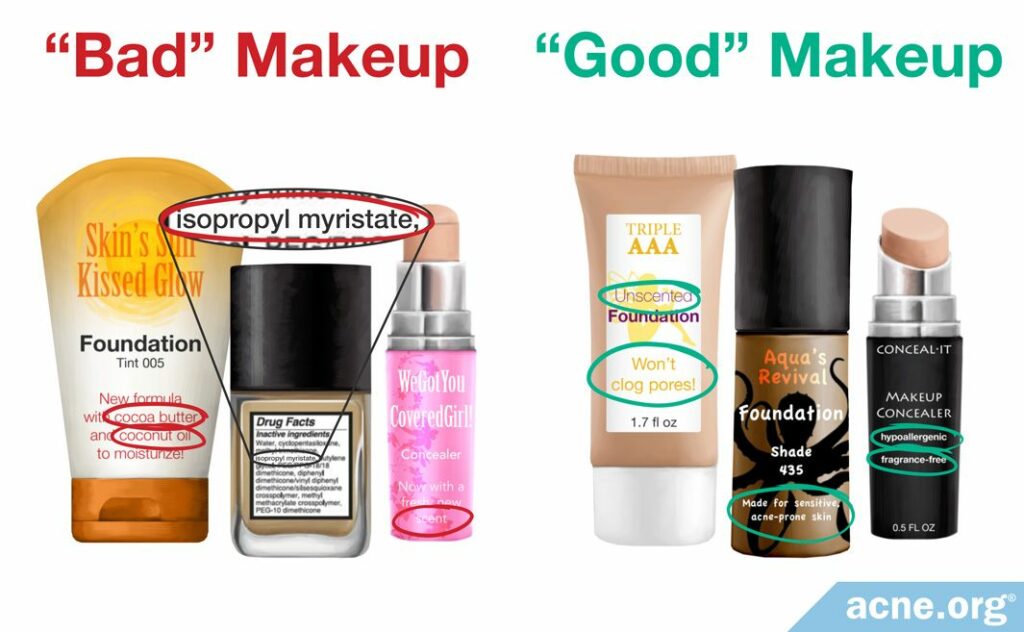
- Avoid makeup with pore-clogging ingredients: The most important thing is to steer clear of cosmetics with comedogenic (pore-clogging) ingredients. The table below provides a comprehensive list of common comedogenic ingredients. Before buying any makeup product, check the label. If any of the comedogenic ingredients listed in the first column are within the first seven ingredients on the label, avoid purchasing the product.
- Avoid makeup containing fragrances or other irritants: Irritation can trigger a breakout or make existing acne worse. It is best to avoid products with fragrances, as these are the most likely ingredients to cause irritation and/or allergies. If you know that your skin is sensitive to a particular ingredient, avoid makeup with that ingredient.
You may need to experiment with different types of makeup to determine what matches your complexion, feels best, and provides the coverage you need.
Reduce Makeup Use Once Your Acne Clears
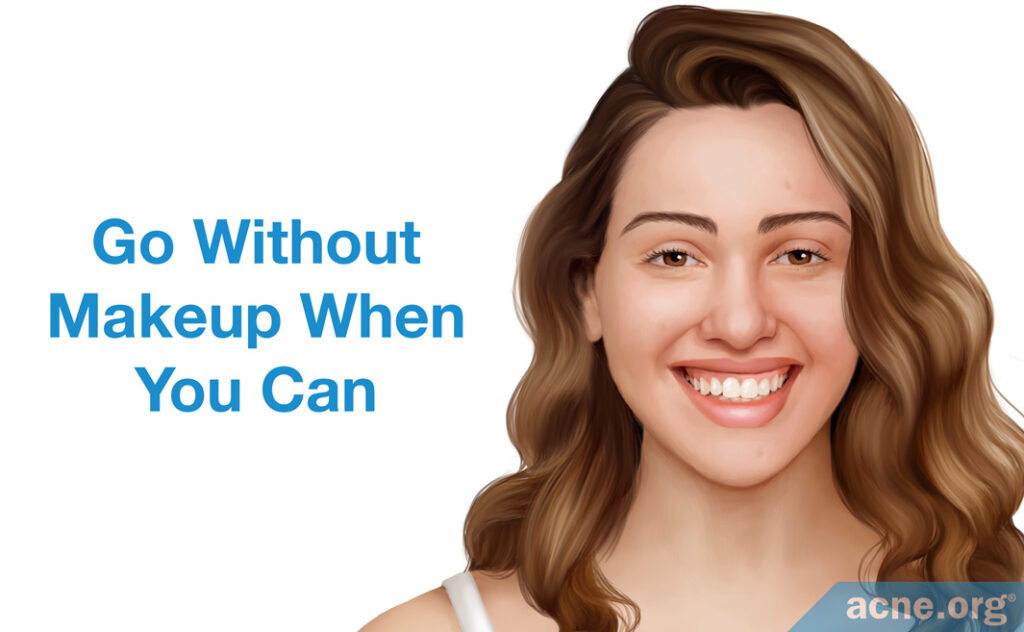
While makeup can boost your self-esteem and confidence while you are treating your acne, it is a good idea to reduce your reliance on makeup once your skin is clear.
Using makeup on acne-prone skin is always a risk, because applying and removing makeup can be an extra source of skin irritation. This physical irritation, in turn, can trigger a flare-up.
In addition, sometimes it is difficult to tell if a makeup product is pore-clogging or contains irritating ingredients, which can make the skin itchy, leading to scratching and more irritation.
Moreover, sometimes it is difficult to fully remove makeup–especially camouflage makeup–and too much makeup left on the skin can prevent acne treatments from being fully absorbed.
To sum up, once your skin is clear, go bare whenever you can.
